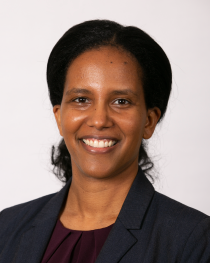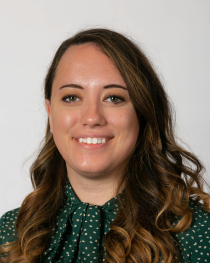On Tuesday, January 25, 2022, the RAISE Family Caregiving Advisory Council and the Advisory Council to Support Grandparents Raising Grandchildren (SGRG) convened to discuss the development and completion of a national family caregiver strategy.
Allison Barkoff, Principal Deputy Administrator of the U.S. Administration for Community Living (ACL), gave the opening address of the council meeting and discussed the effect of the COVID-19 pandemic on family caregivers. Xavier Becerra, Secretary of Health and Human Services, discussed his own personal experiences with family caregiving and underscored the importance that family caregivers provide to the community. He reiterated the current administration’s commitment to recognize and support family caregivers.
Greg Link, Director of ACL’s Office of Supportive and Caregiver Services, presented a work plan that outlined the remaining steps for the completion of the national family caregiver strategy. The steps will include monthly subcommittee meetings, federal partner convenings, and joint full council meetings between the RAISE and SGRG Councils. The tentative goal is to have the national family caregiver strategy completed by August 2022. The current non-federal members of the RAISE and SGRG Councils terms will conclude at the end of August 2022. In February 2022, ACL will publish through the Federal Register a call for nominations for new RAISE and SGRG council members. The new members’ terms will begin in September 2022.
Findings from Stakeholder Listening Sessions: Community Catalyst & UMass Boston
The team — Pamela Nadash, PhD, associate professor of gerontology at the University of Massachusetts Boston, Eileen Tell, fellow of the Gerontology Institute of the University of Massachusetts Boston, and Siena Ruggeri, program and policy coordinator at Community Catalyst — presented an analysis that included information from 1600 respondents to the ACL Request for Information (RFI) and a series of stakeholder listening sessions. This analysis will help to inform the councils’ work on developing a national family caregiver strategy.
For the stakeholder listening sessions, the researchers reached out to over 150 private and public organizations, including organizations that were not previously familiar with the RAISE Council. These organizations included but were not limited to lifespan, respite, kinship and other caregiver-related organizations; indigenous, rural, and faith-based caregiver supports; employers; providers; and government administrators. The researchers highlighted feedback and actions from listening sessions and the RFI that could be carried out at federal, state, local, and private levels to support caregivers. Recommendations included but were not limited to:
- Developing community ambassador programs for caregivers
- Training health systems and providers to better understand family caregivers’ roles in providing care
- Improving home- and community-based systems and expanding access to caregiving supports for a range of populations
- Expanding broadband access for rural caregivers
- Supporting direct care workforce development
- Expanding paid leave options and opportunities for family caregivers to receive compensation
- Providing assistance to employers to support working family caregivers, and
- Standardizing data collection on family caregiving
Family Caregiver Employment and Financial Preparedness: Considerations for the National Strategy
The next portion of the meeting was devoted to panel presentations outlining family caregiver employment and financial preparedness, for consideration in the national family caregiver strategy.
Jennifer Olsen, CEO of the Rosalynn Carter Institute (RCI) for Caregiving, presented on working caregivers. Her presentation included data on the financial strains that caregiving places on working caregivers and the workplace. RCI is conducting pilot programs with employers that evaluate a range of work-related benefits that reflect the needs of caregivers.
Greg Olsen, Acting Director of the New York State Office for the Aging, presented on New York State’s Caregiving Initiative for working caregivers. The state campaign includes creating a business guide to inform employers on the impact of caregiving on employees, a working caregiver survey assessing the effects of caregiving, greater access to family caregiver resources, and a commitment to make caregiving a statewide, cross-sector issue through a multi-agency effort.
Monica Moreno, Senior Director of Care and Support from the Alzheimer’s Association, and Dr. Katherine S. Judge, Professor of Psychology at Cleveland State University, presented on financial literacy and preparedness among dementia caregivers. Their research has shown the dramatic financial impact of caregiving that includes significant out-of-pocket expenses that negatively impact income and savings. This finding led to an effort to better understand the financial needs of caregivers, which resulted in the Alzheimer’s Association receiving a three-year grant from ACL to strengthen financial literacy and preparedness of family caregivers. Through this endeavor, the Alzheimer’s Association released a caregiver-targeted online training program entitled “Managing Money: A Caregiver’s Guide to Finances.”
The National Family Caregiving Strategy: Status Update and Next Steps
Sarah Markel, an aging services program specialist at ACL, reviewed the RAISE and SGRG Councils’ work to date on developing the national strategy. ACL asked federal agencies to report on concrete actions that will support the national strategy. ACL received information from multiple agencies and plans to review and analyze the information for inclusion in the national strategy. The national strategy will also incorporate themes from the current administration’s focus on person-centered care; the impact of trauma; diversity, equity and inclusion; and workforce considerations.
Next Steps
New subcommittees, which will convene in early and mid-2022, will comprise of the federal and non-federal members of the RAISE and SGRG Councils. The subcommittees will focus on the non-federal actions for the national strategy. There will be one subcommittee for each of the five goals in the initial reports to Congress: awareness and outreach; engagement and partnership; strengthening services and supports; financial and workplace security; and data, research, and evidence-based practice.





